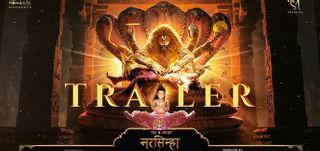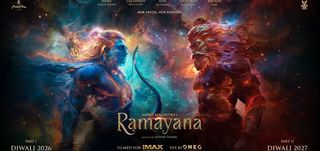
The White Tiger Movie Review
The White Tiger by American filmmaker Ramin Bahrani is based on Indian author Aravind Adiga's book of the same name. It looks at the cultural divide and casteism in India through the prism of Balram Halwai, who is forced to stop education prematurely for hard labor.
Halwai is born in a poor sweet maker's family, so there are certain preconceived notions in him that signify his class and background. For instance, he feels that an Indian servant is so trustworthy that he will vow to remain in servitude even if presented with the key to freedom. Halwai thinks that rich people in India are those with a bigger belly, whereas the poor have a smaller one. It is his version of the haves and the have-nots, i.e., the cultural divide that powers this grim film on Netflix.
Halwai is that loyal Indian servant you see in our movies, the one who aspires to usurp the affluent class, yet chooses to play his cards well knowing his limitations. The affluent family in The White Tiger is that of his village landlord and that powerful person's son Ashok. Rajkummar Rao's Ashok is a US returnee with ostensibly progressive views about India's casteism, but who himself is part of the flawed system. Think of him as a more well-behaved version of Anant Nag's character from Shyam Benegal's Ankur. Only, he does not beat his servant into submission with a strip of leather. His version of enslaving is more mental than physical.
The plot kicks in when Halwai goes to the village landlord's family to work there as Ashok's driver. He pleads for the job, and the family hires him. There is already a number one driver in the family, so he soon realizes that he has to work his way up to the top of the pecking order. The things he does to be the number one vehicle operator of the family heir are those he himself deems condemnable. But the man is never apologetic about his deeds.
At a point in the film, I started to wonder whether The White Tiger is Bahrani's version of Bong Joon-Ho's Oscar-winning film Parasite, but it is not. The poor family in that Korean film also does amoral things to work their up through the hierarchy, without any sense of moral compass. Halwai is like them in that regard, but he is also conditioned by society to know where to stop. His status, or Aukat as you would say it in Hindi, never allows him to break free. That means he must instinctively stop at certain points as if to respect that status. This idea is woven into the script of the film in a way that does not seem out of place.
But many of the movie's ideas are not all that cleverly worked into the screenplay, whereas some are just lost in translation. There is a parallel narrative in the movie involving a state minister and her dealings with the family. This part and the ideas in it never quite blend in perfectly with the rest of the film. I have not read The White Tiger, but I would imagine that that is what happens when a foreign filmmaker adapts an Indian novel for the small screen. There is an open defecation scene that borders on being pornographic. I did not quite get the relevance of that scene in the larger context of what the movie is trying to say.
Nevertheless, the film's major issue is none of the above. It lies with the Rajkummar Rao character. Rao is a usually reliable performer, but here, he seems to be confused about what approach to take to the role. Would he have made Ashok a bit more wicked than it is? Rao's performance seems a bit too conscious and too calculated for my liking.
Priyanka Chopra Jonas is the right choice for Pinky, Ashok's Indian-American wife with a more progressive view of servitude, plus a compassionate worldview. Kamlesh Gill is terrific as Halwai's grandmother, who takes advantage of him with pleasure.
Yet, the best thing about Bahrani's film is Adarsh Gourav as the downtrodden protagonist with a simmering rage in him. Despite all of its flaws, almost every single scene of The White Tiger is compelling mainly because Gourav owns the part (and the film). He may come across to you as a mellowed version of Shah Rukh Khan. This is not a cheap comparison, by the way. It is perhaps Gourav's physical characteristics that caused Karan Johar to cast him as the SRK character's younger version in My Name Is Khan. Sit up and take notice for a new star has arrived.



















